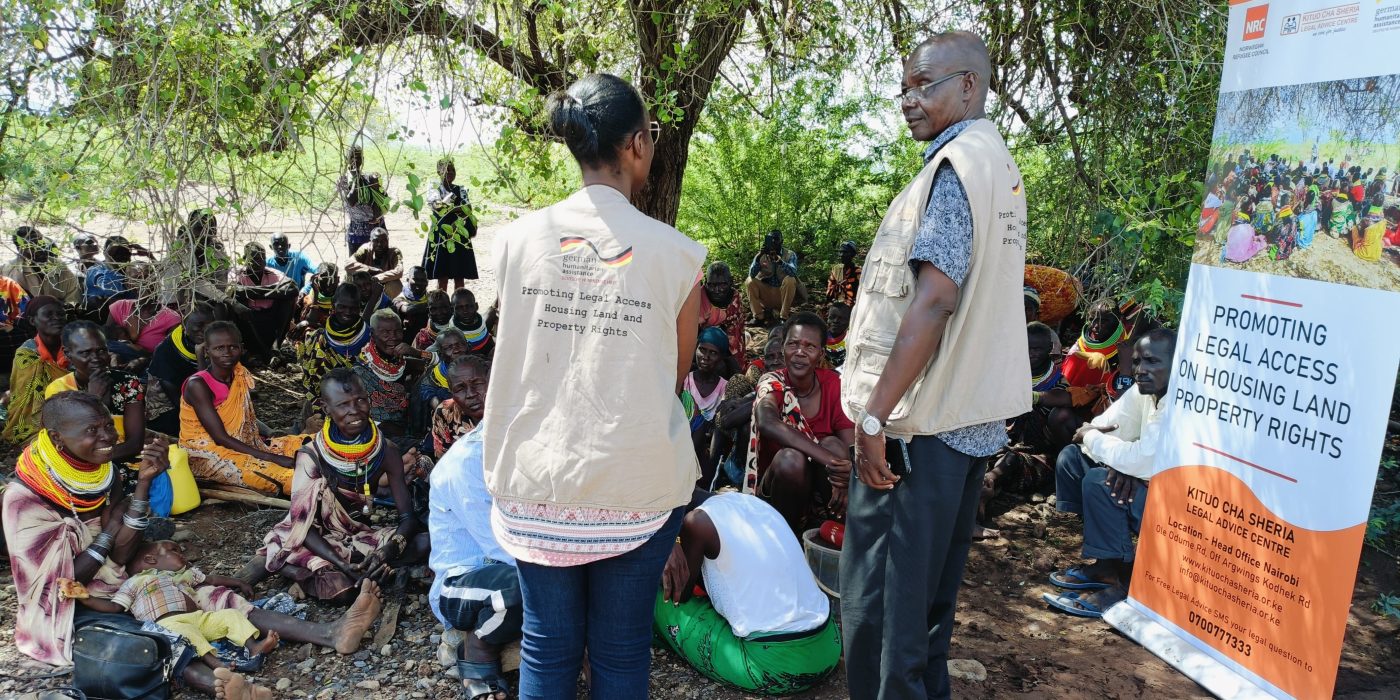Introduction
Housing, land and property are rights guaranteed under Article 13 and 21 of the convention on the status of Refugees 1951. Refugee in Kenya face barriers in leasing land and houses much alone own one. As results refugee often end up in substandard housing, residing in informal settlement with insecure rights which negatively affects their health, access to education and economic status.
The Shirika Plan: A Bold Vision for Integrated Settlements
The government of Kenya’s’ bold, Socioeconomic Hubs for Integrated Refugee Inclusion in Kenya- Shirika Plan envisions in its core pillars, “transforming the refugee camps into integrated settlements supporting the socioeconomic inclusion of refugees and hosting communities in Garissa, Turkana, and urban areas.
The four Core pillars of the Shirika Plan are;
(i) Ease the pressure on refugee-hosting communities in Garissa, Turkana, and urban areas by mobilizing additional financial, technical, and material support in the spirit of responsibility sharing;
(ii) Facilitate the transition from refugee camps set up to integrated human settlements and robust economic hubs;
(iii) Enhance refugee and host community socio-economic inclusion for enhanced self-reliance and resilience;
(iv) Facilitate the transition of refugee basic service delivery from humanitarian-led approach to government systems.
I will delve into the second pillar, “transition from refugee camps set up to integrated human settlements.”
Legal Framework for Land Rights in Integrated Settlements especially the Community land.
Chapter 5 of the constitution Of Kenya, mandates that land be held, used and managed in an equitable, efficient, productive and sustainable manner.
Land in Kenya is held in three tenure regimes public, community and private. (Article 63 COK)
Community land tenure, is the common land tenure held in Turkana and Garissa hence it will be the base of our discussion with regards to the Kenyan law response to the “Refugee Integrated settlement” vision.
Community land is vested in communities identified based on ethnicity, culture or similar community of interest. The County government holds unregistered land in trust for the communities for which it is held.
The Constitution expressly dictates who and/or what constitutes a community for the purposes of landholding. The Community Land Act, however regulates the designation of various land use rights on community land of interest, more specifically, Section 29(b) and (g), provides the use of the land as settlement areas; and any other purpose as may be determined by the community, county government or national government for the promotion of public interest respectively.
It would be important to note that sometimes there is conflict between the government and communities, on what a particular piece of land has been set apart for by the government and what the locals believe their ancestors or their culture stipulates, which conflict is to be anticipated in this engagement.
With the passing of the Refugee Act, 2021, (Section 28 (4), which gives refugees the chance to be gainfully employed and take part in Kenya’s economic and social development, will result in a noticeable and welcome improvement to Kenya’s response to refugees by working toward a whole-of-government approach to unlocking the potential for refugees in the country to significantly boost Kenya’s economy, where renting and leasing property will contribute to the Shirika vision.
Key Considerations for Implementing Integrated Settlements.
In conclusion, the responses that the author foresees in the implementation of the bold “Refugee integrated settlement is;
First, community land must be used for the benefit of the community, in compliance with the law and the rules and regulations established by the community. However, community land may be used by the county government or the national government for the promotion of public interest. (CLA Section 29 (g))
The Constitution on matters of compulsory acquisition, (COK, Article 40, Land Act, CLA section 6) stipulates that occupant of a piece of land and registered owners are to be paid compensation when land is taken for public purposes. Compensation will be held by the county government and released to the community as soon as the property is registered.
Second, On leases, it good to note that a registered community, with the approval of the members of the said community, may cancel a leasehold if the lessee fails to comply with the requirements or adhere to any restrictions imposed by or under any law pertaining to the utilization of the land to which the right relates or the rules and regulations of the community. (CLA, Section 33)
Third, the adoption of the social Tenure Domain Model
Kituo Cha Sheria and NRC– ICLA have taken the mantle to educate the refugees and the host communities in Kakuma and Daadab on Housing, land and property rights by providing, information, counseling and legal assistance.
By Rachael Wahome - Legal-KCS-FMP

